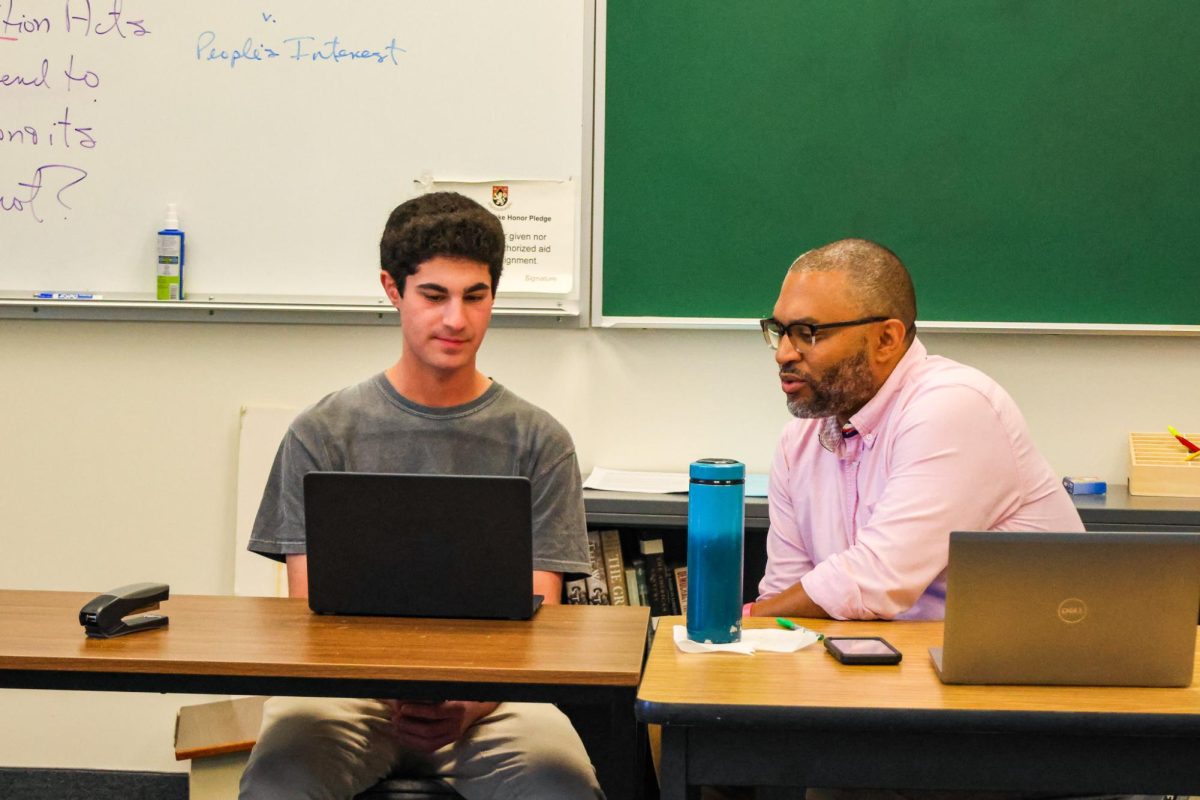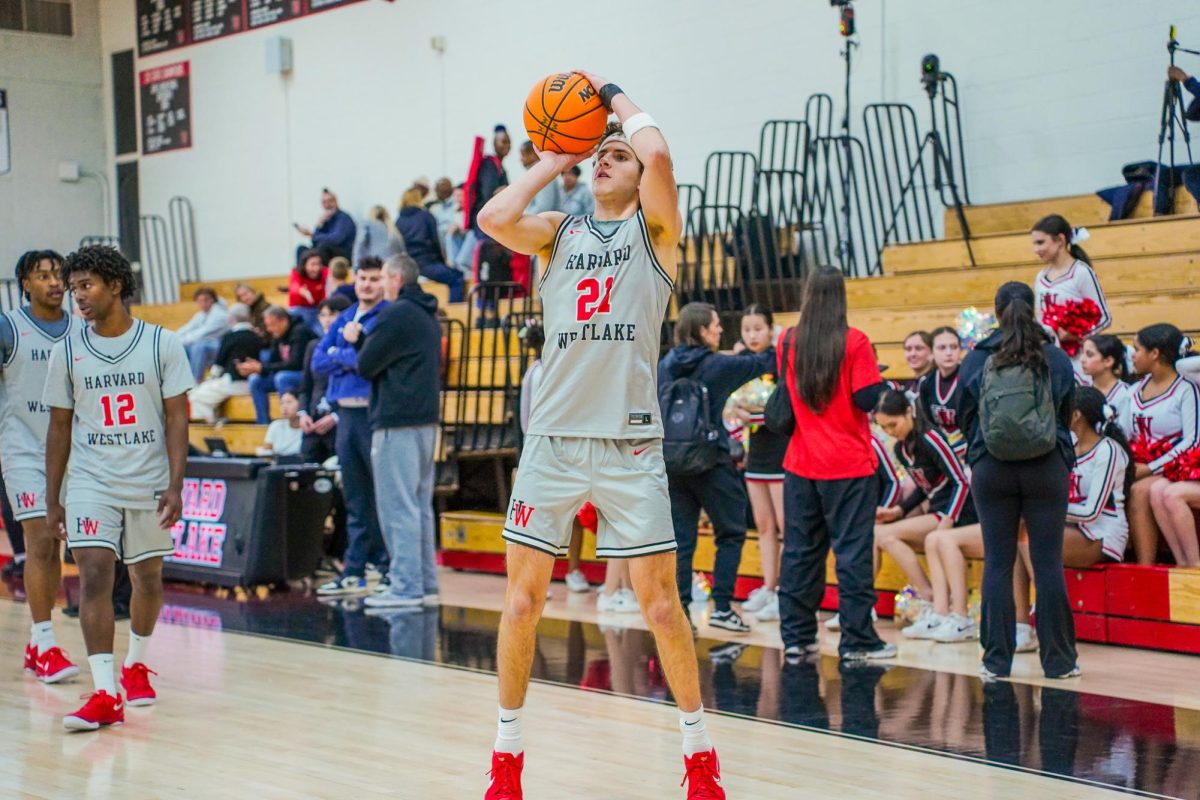I read with interest the Opinion piece in the Jan. 29 edition of the Chronicle entitled “A-P(ushed) The Wrong Way” and would like to clear up a few misconceptions and offer a different perspective.
The author of this thoughtful piece raises the concern that the new policy on Advanced Placement maximums (two AP’s in the sophomore year, three in the junior year and four in the senior year) and the new block schedule will constrain, as she aptly calls it, Harvard-Westlake’s “legacy of academic exploration and freedom.” However, in her next paragraphs she indicates that she measures academic exploration and freedom by the number of AP courses available in our curriculum, and also that the number of AP courses is the indicator by which the “prestige” of a school is judged. She also raises concerns about the changes to the science curriculum, using the changes to AP Biology as an example. I’d like to address all three issues she raises.
First, I couldn’t agree more that one of the most important hallmarks of a Harvard-Westlake education is the opportunity for students to take a broad variety of advanced and intellectually rigorous courses in their areas of interest. We attract the top students in the Los Angeles area, and providing academic challenge and opportunity is a key part of our school’s identity and philosophy. However, in our current system of unlimited AP courses, students often feel they need to take as many AP courses as possible to be competitive for the most selective colleges, and students feel pressure to take courses that don’t interest them because of the “AP bump.” Prior to instituting the AP maximums, we spoke with many college admissions officers, and their message was consistent: there was a time when just taking a high number of AP classes and having strong test scores was generally what was needed for selective college admissions. However, times have changed and they are now looking for students who are able to demonstrate their strengths in a variety of different ways, not just in the number of courses in one particular kind of curriculum. As long as we indicate to colleges what our most rigorous courses are, it doesn’t matter if they are AP courses, honors courses, or advanced topics courses.
It’s important to note that the presence or number of AP courses is not what confers prestige on a school. Many of the most well-known and respected schools in the country do not offer AP courses or, if they do, they limit their usage. For example, neither Phillips Academy Andover nor Phillips Exeter Academy offers AP courses. The majority of the private schools in the Washington, D.C. area recently decided to abolish AP courses, including nationally known schools like Sidwell Friends School and Georgetown Day School. At Harvard-Westlake, we have given our faculty in each department the freedom to decide whether they feel that the courses designed by the College Board are what they want to offer, or whether those courses aren’t broad enough or deep enough for our students. In several areas, the departments have decided to stick with the AP program – the AP Calculus sequence, for example, or the AP courses in World Languages, which our faculty feel have been redesigned well to align with our academic values. In other areas, the faculty have decided to go in new directions, different from those the AP curriculum mandates under its standardized curriculum. For instance, our faculty do not feel that AP Computer Science Principles, AP Art History, AP Biology, or AP Physics I are right for our students and are designing courses unique to Harvard-Westlake.
That brings me to the concerns raised in the editorial about the changes to our science curriculum. A little history might help here. Years ago, our science faculty asked for double periods because labs needed more time than 45 minutes would allow. In addition, the AP Biology curriculum was so packed with content that the teachers needed to add extra course minutes to that class to cover all of what was required. However, our AP Biology teachers have long been eager to design their own advanced courses. The change to the block schedule means that every science class (and all of our other courses) will get ample time for labs and other topics that require more time and depth. The two advanced courses the biology teachers have designed are able to be taken singly or, for students who love biology, taken together or taken in sequential years. If a student takes either one they will be considered to have undertaken our most rigorous course of study in the life sciences, so there’s really no reason for a student to take up an extra elective slot. Students will be well prepared for either of the two SAT subject tests offered in biology and, most importantly, college-level work in an area of keen academic interest. It feels important to note that the schedule change did not force the change in these AP sciences. Our faculty already wanted to make these changes to better serve students and the new schedule and the AP maximums gave them the opportunity and impetus to do so. I would also like to point out that in the new schedule students have the same exact number of slots – seven – in which to take full-credit courses, just as they do in our current schedule. In addition, we’ve added a new Directed Study period to allow students to take partial-credit courses in additional areas of interest, in an attempt to give our students even more opportunities for intellectual exploration.
That brings me back to my main point. We want students to take advanced courses in their areas of interest, and we want those courses to give students the best possible experience, whether or not they have an AP designation. We believe that this is the definition of academic excellence and upholds Harvard-Westlake’s long tradition of allowing students the freedom and opportunity to challenge themselves across many different areas of our curriculum.
Respectfully,
Laura Ross
Head of Upper School

































